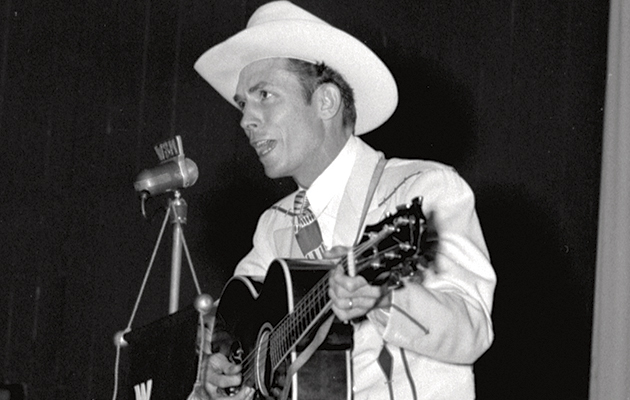Released in March 1949, “Lovesick Blues” brought stardom, money – that year alone Williams earned $65,000 from royalties – and an invitation to perform weekly at the Grand Ole Opry in Nashville, the pinnacle of every country singer’s ambition. On his first show in June he was introduced as “the Lovesick Blues Boy” and the place went happily nuts.
It marked the beginning of Williams’ imperial phase. Between 1949 and the end of 1952 he strung together 20 mostly self-written Top 10 hits, including “Long Gone Lonesome Blues”, “Why Don’t You Love Me”, “Cold, Cold Heart”, “Hey Good Lookin’” and “Honky Tonk Blues”. He wrote prolifically and apparently without struggle, scribbling in notebooks and on napkins. Country legend Ray Price, then a teenage hopeful, recalls composing “Weary Blues” with him in a car en route from Nashville to Evansville, Indiana. The song was stage-ready by the time they arrived. “It’s an incredible run of songs to put together that fast,” says Petty. “He must have been writing all the time. They’re incredibly simple, there’s nothing flowery. It’s very direct. When he’s funny he’s really funny, and when he wants to break your heart he really can.”
Near the beginning of this run Williams wrote “I’m So Lonesome I Could Cry”, the lyrics scrawled on a piece of hotel stationery. It first appeared without fanfare as the b-side to “My Bucket’s Got A Hole In It” but has since been recognised as his career masterpiece. “It’s all summed up in that song,” explains Earle. “It has that thing everyone’s always looking for: the deep, dark poetry in country music. As a writer I’m mechanically fascinated with how he does that. Even today people still believe that he’s singing about them, and that’s really what the job is all about. There’s empathy even in his lighter material. Above all, he had no fear.”


